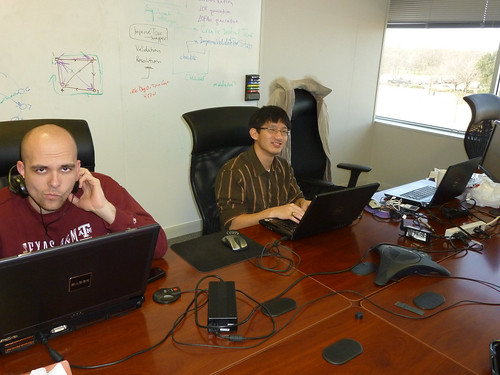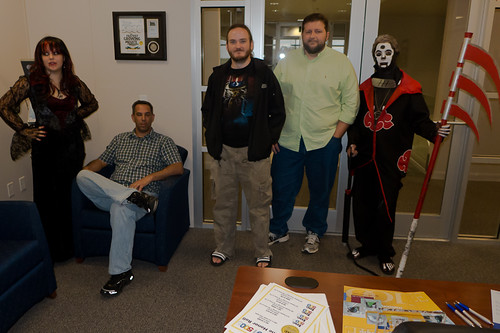Once upon a conference, I asked a small technology business owner about the interactions his 12-person team had, and he was sincerely surprised by the question. “Why would they need to talk? I tell them what to do, and then they code, each in their cubicle.” – was his response.
We like to think about work strictly as job function-dictated activities. Gathering requirements, evaluating options, making product decisions. Meeting to discuss who does what, how hand-offs happen, what are the acceptance criteria. Org chart-based relations that dictate who is in charge, who reports to whom, and who will get the credit or blame. The result of these interactions is work product, the how-to of getting to a solution.
Yet, there is more to work than “just work”. It is also the true, human relationships we develop with people we spend a lot of time with most days of the week. A quick exchange by the water cooler about a concert, a site of a geeky new mouse pad on someone’s desk, kids’ pictures on the screen. A small group is discussing the latest smartphone while getting coffee; when waiting for a meeting to start someone mentions that she is looking for a rock-climbing gym; and somebody else is asking for advice on the user groups during lunch. The result of these conversations are not necessarily a work product (although it could be directly useful for work, too), but the building of a team of friends.
A team comes together through learning small, personal, often seemingly insignificant details about each other, discussing experiences, finding shared interests. Working with friends matters. It is a lot easier to be open-minded and welcoming to a friend’s ideas, than to someone’s who is a stranger. Friends deal with disagreements by working together, while strangers get upset and push each other away. Knowing and liking people one works with makes everyone happier and more productive.
When the opportunities for social interactions within a team are limited, work suffers. Teams of strangers are less interested in working together cooperatively, sharing information, establishing and striving toward a common goal. There is more shirking, less innovation and leadership. And less success.


No comments:
Post a Comment